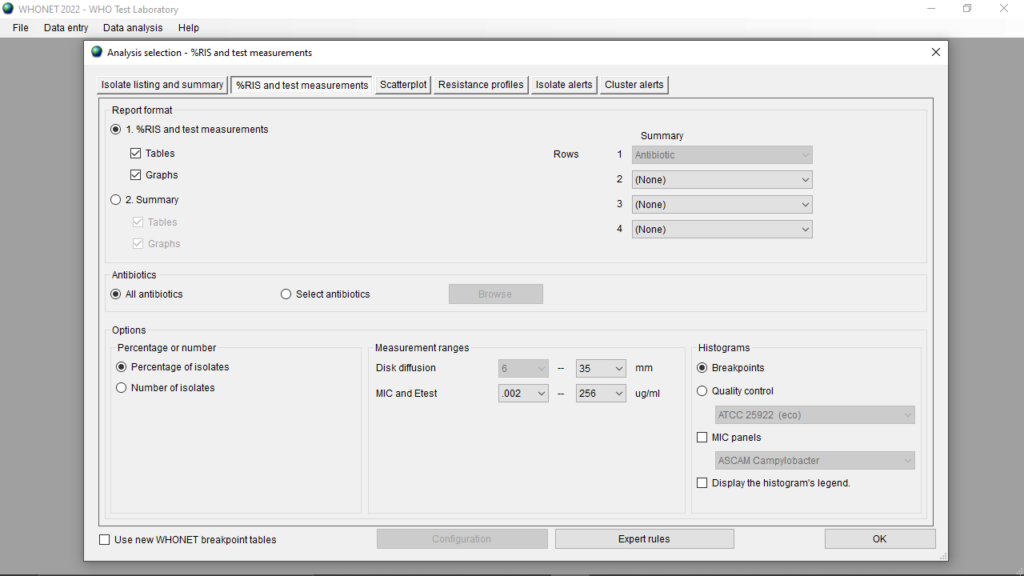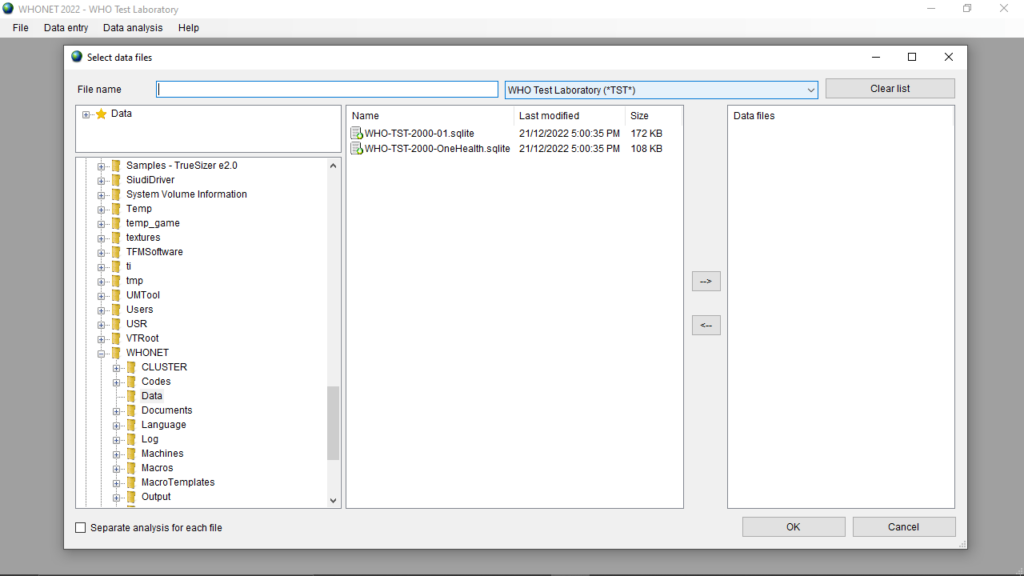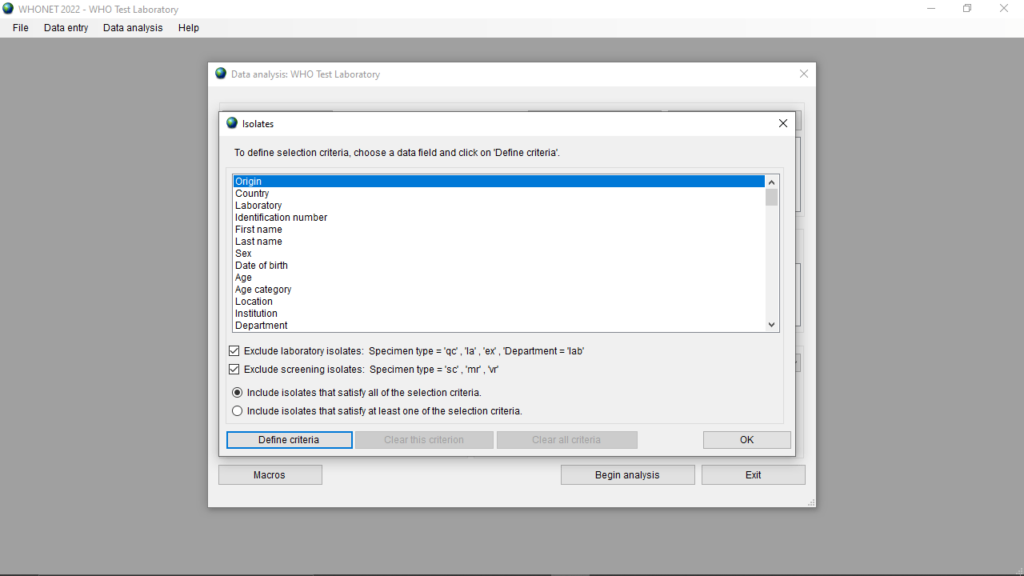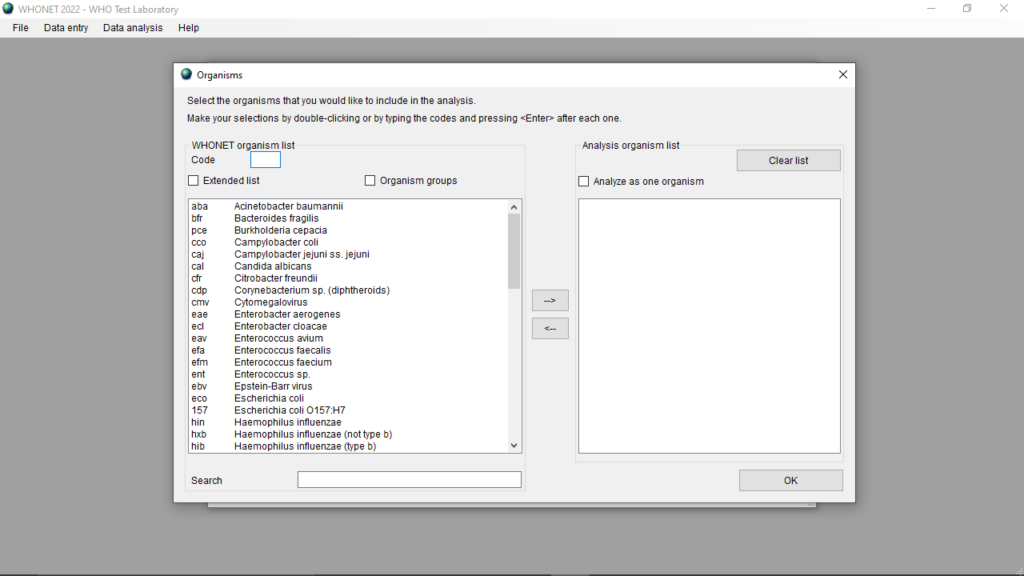Thanks to this comprehensive utility, users can work with results of testing bacteria, fungi and parasites. In addition, they have the option to set up alerts.
WHONET
WHONET is a free program for Windows developed by the WHO Collaborating Centre for Surveillance of Antimicrobial Resistance. The principal goals of this software solution is to enhance the local use of laboratory data and promote international collaboration through the exchange of information.
Laboratory configuration
The application allows you to customize it in a variety of ways. For example, you can indicate which antimicrobial you test, patient care areas served and data fields for the surveillance. In addition, you have the option to manage microbiological alerts of unusual organisms and resistance phenotypes.
Data entry and clinical reporting
You have the ability to enter the susceptibility test results as well as retrieve, correct and print clinical records. When you load the desired information, the utility may provide immediate feedback on important strain phenotypes.
Analysis
The program features a user-friendly graphical interface where you can conduct many types of analysis. Available options include isolate line-listings and summaries, such as organism frequencies over time, zine diameter and MIC histograms, antibiotic scatterplots, regression curves and more.
It is necessary to mention that the tool has alert features which permit the detection of unlikely results or hospital outbreaks of bacterial species. If you want to use the testing materials for educational purposes, you may use a special app called CourseLab.
Features
- free to download and use;
- compatible with modern Windows versions;
- you can work with results of testing bacteria, fungi and parasites;
- it is possible to set up alerts to detect unusual characteristics;
- allows you to build scatterplots, regression plots and more.




